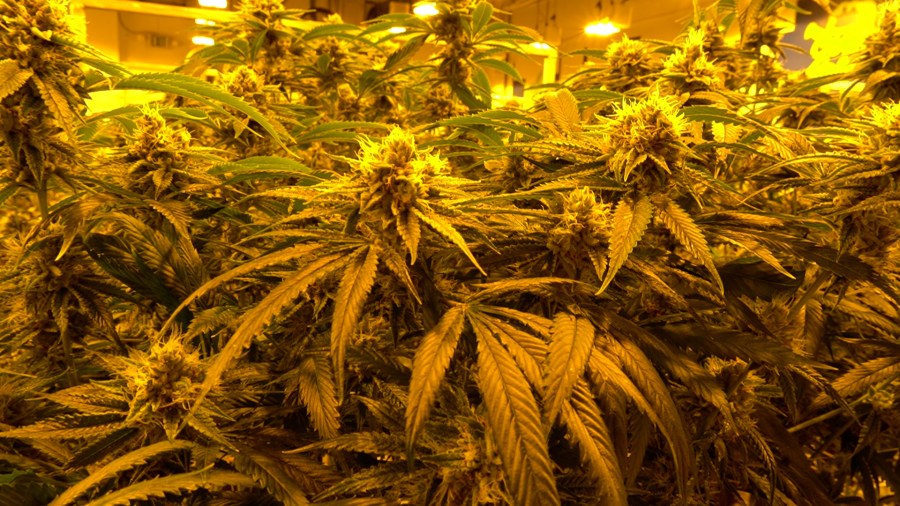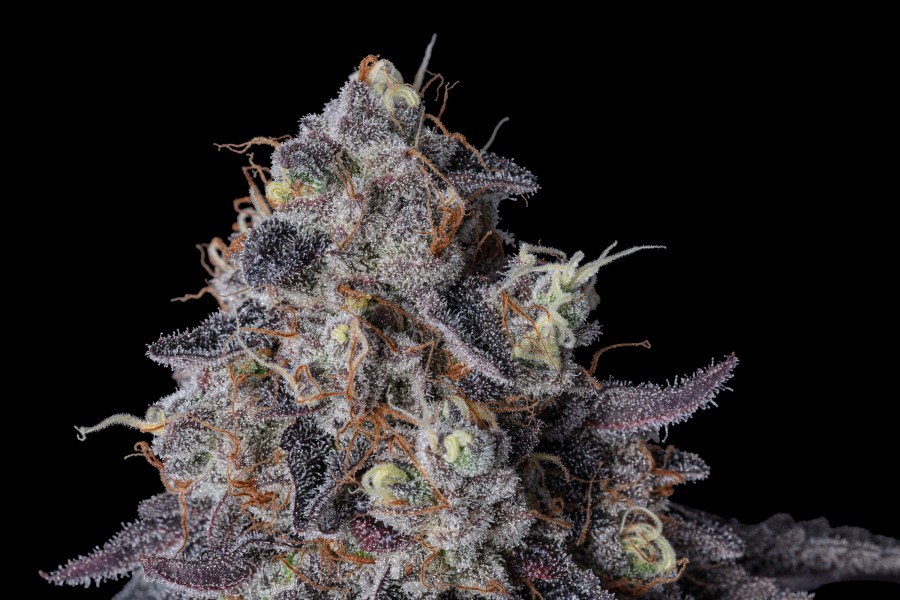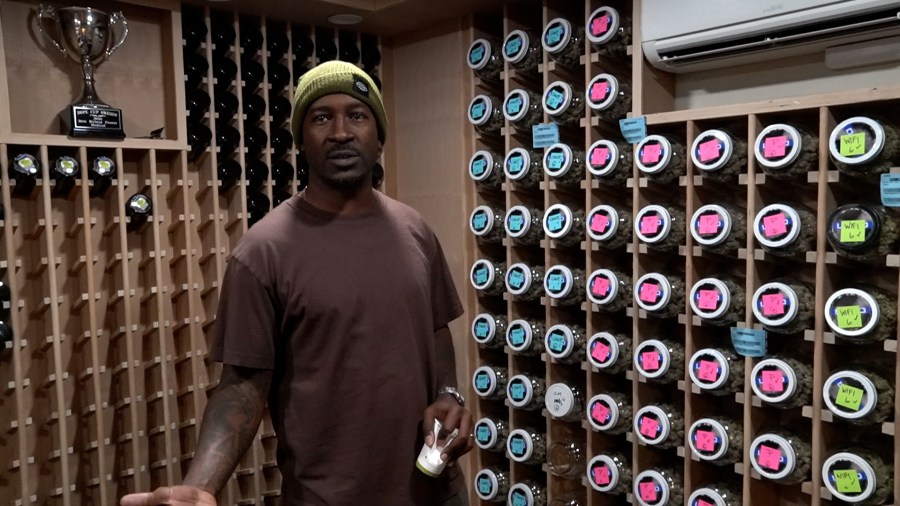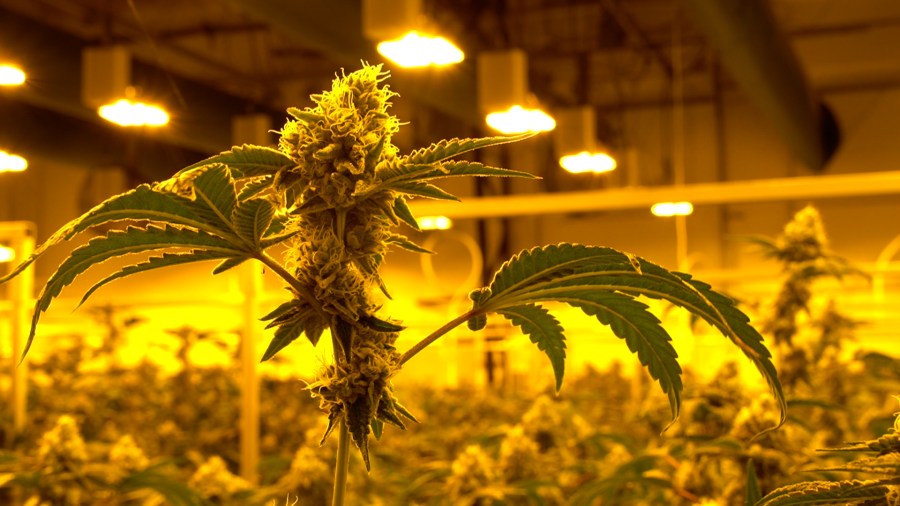PORTLAND, Ore. (KOIN) A local cannabis grower is working to innovate the industry — both technically and in terms of equity — in Portland and beyond.
Jesce Horton is the CEO of LOWD cannabis company and he’s using his background in engineering to help innovate the process.
That includes creating a unique ergonomic trim room and being efficient with water and energy use.
The term “loud” in cannabis culture refers to high quality weed. Like something noisey, cannabis of this nature can be detected from afar, only through its scent rather than soundwaves. That’s certainly the case for LOWD, whose piney herb could be detected wafting outside their Northeast Portland facility, practically through the walls, when KOIN 6 News dropped by to take a tour Wednesday.
In addition to cultivating weed, Horton also co-founded a nonprofit to help people of color find success in the industry.

NuLeaf Project works to provide grants and zero-to-low interest loans as well as technical support to entrepreneurs and workers in the cannabis industry from communities disproportionately impacted by the War on Drugs.
“As I got into the industry and saw the opportunity that was afforded to me, I figured I had to do some things. There was like easy to do good in the industry, right, there’s so many good things to do that it wasn’t like I had to go and do this whole effort in order to do a lot of good,” Horton said.
NuLeaf Project, which was also co-founded alongside his wife Jeanett Ward Horton, partners with the City of Portland using local cannabis tax revenue and private donors. Portland was the first municipality in the U.S. to invest its tax revenue from the legalized cannabis industry into the communities most negatively affected by cannabis criminalization, though Horton said governments in other parts of the country that have a legalized weed industry are starting to catch on.
So far, 30 economic justice grants and loans have been facilitated through the program for funds totalling $500,000, according to NuLeaf’s website. Grantees in Portland have included the African-American owned and operated Green Box, the first cannabis delivery business licensed in Oregon; Green Hop, a Northeast Portland retailer that gives back through an apprenticeship program for young African Americans; Natural Wonders, a Southeast Portland company that represents Oregon’s first and only Native-owned cannabis dispensary and others.
NuLeaf recently expanded their economic justice work to other communities in Colorado and Texas with similar programs.
“We just gave away $200,000 through a partnership with Ben’s Best, Ben Cohen’s new cannabis brand, Ben from Ben and Jerry’s in Colorado, where he’s giving away 100% of the profits of his business to businesses, Black and brown businesses as well as the Last Prisoner Project,” Horton said.

In terms of the origins of LOWD, Horton had a winding path into the industry, having originally worked in the engineering field.
LOWD only launched under that brand name during summer of last year after the company moved into a Northeast Portland facility in 2018. But the company itself has been around for about eight years. Horton said he transitioned to working in the cannabis industry after working as a sales engineer focused on robotics and automations sales with the German-based industrial manufacturing company Siemens.
“When I was in Munich I probably spent most of my time in Amsterdam. And that’s when I really kind of…first I realized my disdain for kind of the corporate type of day-to-day because I was at such a high level of corporate but really hated it. But enjoyed being able to kind of live in that freedom with cannabis,” Horton said.
His job with Siemens then moved from being located in Germany to Portland. From there, he bought his first clone from a local dispensary.
“Got my first clone, put it in my backyard and I never looked back from there. I went to my backyard to the basement, from my basement to my garage. My whole house was pretty much like a greenhouse. And then I just kind of moved out and just kept going from there.”
Black Cherry Cheesecake was the first strain Horton grew from his basement.
He then moved the operation to Corbett, Oregon. He spent time and effort converting a horse barn into an indoor cultivation facility and had some greenhouses on a 40 acre plot. The industry was transitioning from medical-only to broader legalization at the time, Horton said.
What he did not realize at the time is that the building was located at a National Scenic Area of the Columbia River Gorge Commission, despite being located in Multnomah County. They told him he couldn’t operate any medical or recreational grow operations at the site due to the zoning conflict.

“We actually got kicked out of there on 4/20, believe it or not, in 2017. We had no location. We pretty much lost everything. But we still had our genetics,” Horton said. “We were lucky to find this facility, we brought all our plants over here.”
It was a tough six months trying to find work to pay for rent and bills after the Corbett facility closed, let alone looking for a new facility. Horton had to scrape together every resource he had personally, as well as asking friends and family, in order to raise enough capital to start the business over again.
“We got lucky around the end of 2017, moved in 2018, spent a couple years building out the facility from scratch, really. Kind of starting with four lights, eight lights and 16 lights and going kind of bootstrapping,” Horton said.
Fast forward to today and Horton’s dedication has paid off. For example, his Platinum Garlic Cookie strain was the number one selling flower in the state of Oregon from February to May of this year, he said.
A focus on cultivating quality strains is what brought early success for Horton, having won first place in the Best Hybrid Flower Medical category with the Dope Cup Oregon competition in 2016. The winning strain was Fire OG by Saints Cannabis, which was the name of Horton’s company then.
Horton’s engineering chops also plays into running the facility to innovate and maximize efficiency to the process. For example, the company created a trim room designed with ergonomics in mind to maximize worker comfort and productivity, something Horton believes is a world first.
In addition, the entire 8,000 square foot facility is focused on reducing energy usage, Horton said. For example, most of the dehumidifiers and air conditioning units in the facility route toward one place where the condensate water can then be cleaned and reused to hydrate the plants. Horton said 50% of the facility’s total water usage now comes from the air using the condensate reuse method.

In addition, he replaced the metal ducts in the flower room with fabric ducts. With airflow holes dispersed evenly throughout the fabric tube, that circulates the air more effectively than conventional ducts and thus prevents hotspots. Normally in flower rooms, it’s a common sight to see a high number of electric fans redistributing the air to normalize the temperature in the room, Horton said, but not at LOWD.
The cloth ducts also have the advantage of being able to be taken down and cleaned in a laundry machine in between grow cycles, preventing the accumulation of unwanted airborne material being redistributed onto the plants.
Horton is also a co-founder of a national nonprofit focused on equity in the cannabis field, called the Minority Cannabis Business Association. Though he and his wife Jeanett have since stepped down from running MCBA, he said the organization is still growing with the help of some prominent names in the industry.
Now with NuLeaf Project, the couple is continuing their mission of instilling a higher purpose with their work in the Cannabis field and directly address the disproportionate impact the War on Drugs has had on communities of color.
“Ever since I got into the industry, I wanted to have more purpose behind what I did. And because my dad spent time in prison for cannabis, I spent…got arrested a few times, had to deal with really difficult repercussions kind of as a result of that.”

NuLeaf’s equity work doesn’t end at Portland city borders, either. They were one organization involved in a large working group of more than 80 others helping to craft a statewide bill related to cannabis equity, HB 3112. The bill would establish an Equity Investment and Accountability Board and Equity Investment and Accountability Office within the office of the Governor to provide equity oversight of the cannabis industry throughout the state. Horton was disheartened to hear that the bill appears to have lost steam nearing the end of the legislative session, with it’s last recorded activity being a referral to the House Ways and Means Committee in late May.
The name LOWD is a play on words, Horton said. It’s both a reference to the slang term of quality weed being called “loud,” but it’s also an acronym for “Love Our Weed Daily” or “Love Oregon Weed Daily.”
Ultimately Horton said he thinks the legacy of his company isn’t solely built on just the quality of the product, but embracing a spirit of people in the cannabis industry having each others’ backs.
“We got great strains and we’re great and we got great marketing. But our success really, I believe and everybody here believes that it lies on us kind of being a beacon for true cannabis culture from a diverse perspective and representing the Pacific northwest and cannabis culture to the fullest.”